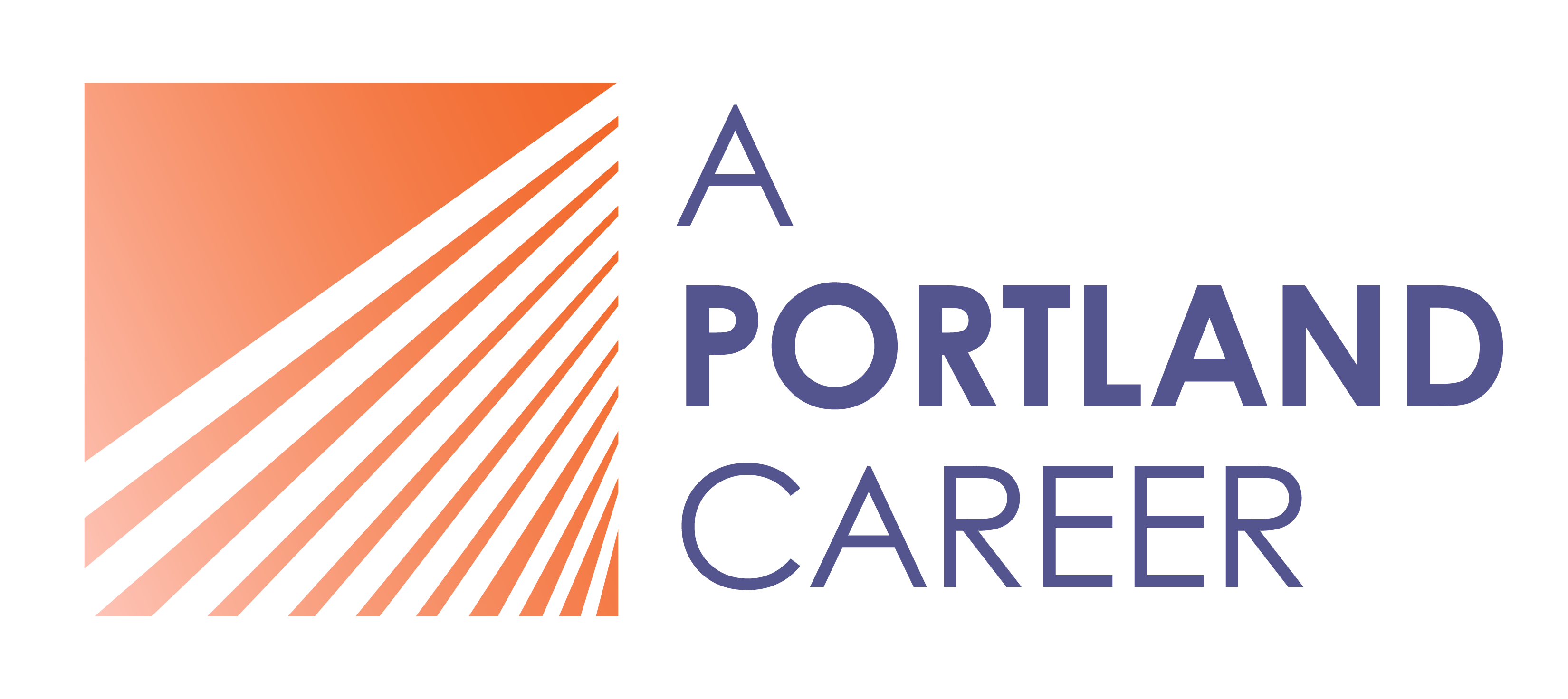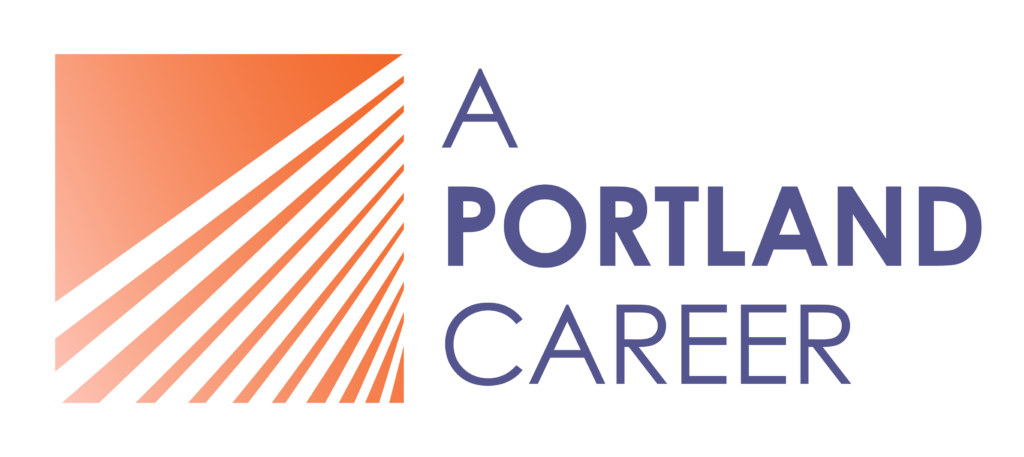Ageism in hiring is real, so you’ve got to game it out. Here are the tools you need to find age-friendly employers and age-proof your LinkedIn, resume, and interviews.
Getting hired in a new field is so hard when you don’t meet the job requirements yet. Create your own internship, and gain the experience you need!
How to Create Your Own Internship
By A Portland Career, and edited by Suzie Sherman
Stuck in your job search? Work with us to design your own path!

How can you meet the requirement for industry-specific work experience if no one will give you the chance to gain work experience in the industry? This is one of the most frustrating catch-22s for job seekers in a new field! You don’t need to be a student to benefit from interning with a great employer. If you can’t find a formal internship program, here’s how to create your own internship and get the experience you need to start a career in your target field.
While it’s still true that most internships are planned and executed under the umbrella of a college or university, many companies and nonprofit organizations utilize both paid and unpaid internships, no student required. Many career changers, or people re-entering the workforce after time away, are setting up internships as a bridge to a new sector. Technology and economic changes, and a deeper focus on diversity, equity, and inclusion (DEI), along with the COVID-19 pandemic, have generated meaningful dialogue about the changing nature of work, and paid internships are a vital part of this culture shift. As a non-student job seeker, now might be the perfect time to design your own internship as a gateway to a better career path.
Home → Helpful Articles → Job Search → How to Create Your Own Internship
We’ve got a ton of articles about how to navigate a successful job search. Here are a few you might find helpful at this step:
- How To Find Remote Jobs: The Insider’s Guide to Your Next Remote Job Search
- LinkedIn For Job Search: 10 Powerful Tips To Find Your Next Job (Without Your Current Employer Knowing)
- How To Recruit Recruiters with Your LinkedIn Profile
- The 6 Best Social Media Platforms for Job Seekers — and How To Use Them
- How to Avoid These 6 Job Search Procrastination Triggers
- The Best Job Boards in Portland OR and Beyond, and How to Use Them
- How to Find Jobs for Creatives in Portland, Oregon
If you’re feeling stuck, reach out, and we’ll customize a job search to match where you’re at in the process.
On This Page

Internships: not just for college students
Established internship programs are traditionally the provenance of colleges and universities. The well-resourced career center at the school sets up a win-win relationship with an established network of employers, and then students work 10–20 hours per week to gain “real world” learning on the job for 10–15 weeks.
These internships (typically unpaid) give students a way to earn academic credit, learn and use professional-level skills, and generate contacts and job references in a specific field. The university maintains its often lucrative relationships with the business community, and the companies and organizations receive the benefit of adding new talent to their pool of recruits, all with minimal monetary output. Often, this structure leads to job offers after graduation, as well.
Many nonprofit organizations follow this model. They post announcements for paid and unpaid internships, along with their permanent positions, on their websites and other sites such as Mac’s List here in Portland.
Organizations know that while a volunteer has a weak obligation to the employer—they can stay for an hour or a year—an internship includes a written agreement about the length of the commitment, a clear end date, duties expected, and supervision provided. In short, it more closely mimics a paid position, with similar accountability for both parties to meet their commitments.
Private businesses are not allowed by law to benefit from unpaid labor unless the intern is a student earning academic credit. If you’re not a student and would like to gain experience in a private business, design your own paid internship or offer pro-bono work in exchange for valuable experience and connections. It’s a good idea to familiarize yourself with the labor laws governing internships before you start.

Create your own internship
Entering into an internship, to say nothing of designing your own, is a serious endeavor, akin to starting a proper job in your new field of interest. An internship is a means to further your career development. Before you take on an internship, you must first have a clear idea of the field you want to enter. Next, you need to target specific employers that have the capacity to provide the work, training, and mentorship you need.
Decide what you want to do
Creating your own internship is most appropriate when your career exploration becomes focused on a clear objective. Your career goal is clear when you’ve defined:
- Your field of interest
- The job role you’re seeking
- The specific skills you need to gain in order to find paid jobs in that role
If you have reached these steps in your career search, and you can’t find permanent positions or established internship programs without having more direct experience in your chosen field, this is a good indicator that it’s time to start creating internship opportunities of your own.
On the other hand, if you have not decided on clear career objectives yet, maybe you can think about some strategic volunteer opportunities instead. A formal internship will bind you to a specific job role, and to a certain time frame and expectation of work. Volunteering can be more like dipping your toes into many different pools, as you generate ideas about what it is you want to do.
Research companies and organizations to pitch
If you have a clear career objective, and the need to create your own internship, it’s time to move on to targeting the companies and organizations who can provide you with the internship experience you seek. This search bears similarities with targeting the right companies to work for, but it is important to filter your search through the unique needs you will have as an intern. You want to find companies and organizations who are willing to provide training, work experience, mentorship, and work with you on your learning goals toward furthering your career development.
Don’t be shy! Utilize your network of friends, former colleagues or professional associations, LinkedIn and other social media, and the career center at your alma mater to initiate contact with potential internship sites. Networking with your contacts should generate introductions to new contacts with whom to set up informational interviews. Your goal here is to find the human resources departments and hiring managers you will pitch with your self-designed internship proposal.
Tip for effective networking: Elevate your informational interviews with a great elevator pitch!
Write your internship proposal
In the following examples, our career coaching clients show how you can design your own internship by demonstrating the win-win value of offering new energy and skills to a company or organization who can provide the training and connections you need.
An effective internship proposal is much like a cover letter you would write when applying for a permanent position. Demonstrate that you are the right person to meet a need at the organization, and point out the win-win nature of an internship or pro-bono agreement. An internship has a defined time frame and a different exchange of compensation: perhaps less money for more training and mentorship.
Examples Of Self-Designed Internships
- Laura wanted to use her advanced writing skills in a green company. A recommendation from Richard Bolles in What Color Is Your Parachute caught her eye: create employment by making a proposal to a decision maker. Through networking, she followed the strategy of meeting and interviewing the employer, identifying a problem she thought she could solve, and then submitting a win-win proposal in which she offered to do pro-bono work. After a few months, she moved from the pro-bono project to becoming a paid employee.
- Aron was a Portland actor whose paid work in customer service was too far from his passion for performance. His career goal was to work in development and fundraising for the performing arts. He submitted several applications but fell short in matching the requirement for development experience or knowledge of Raiser’s Edge, the cloud-based fundraising software most often used in nonprofit development. He wrote a letter to the theater groups that he most admired, offering his weekly day off to help in development with a large variety of tasks, from stuffing envelopes to writing fundraising letters.
- Alison was passionate about social justice and sustainability, and her resume showed a series of short periods of employment and volunteer activities. She was able to review her values and commit to the following broad professional mission:
My mission is to help foster job creation through green-collar jobs, sustainable business, or sustainable agriculture.”
With this strong focus, she identified about a dozen nonprofit organizations with similar missions. She selected two for potential internships and sent them the letter shown below:
Tom Doe
Sustainability Action
1234 NE 139th Avenue Portland, OR 97200
Dear Mr. Doe:
I am writing to offer my skills to Sustainability Action (SA) with the purpose of completing a self-designed internship. I call this an internship rather than volunteer work because I can offer a steady commitment of 20 hours per week for several months without pay, with the goal of furthering my professional development. I am available to work remotely or at a workplace of your choice.
As you can see on my resume, I have three years of progressively responsible experience in small business administration. I am a highly self-directed individual, able to recognize an unmet need in an organization, and take the initiative to create effective solutions. I have coordinated a coalition, performed street outreach, planned and implemented a successful press event, created curricula, and taught classes on various topics for diverse audiences. I am interested in using and further developing several of the following skills:
- Sharing Information: education, community outreach, public speaking
- Coalition Building: Organizational outreach, meeting facilitation, program planning and implementation
- Organizing and Analyzing Data: database, spreadsheets, research and proposal planning
I have selected SA because the mission of your Works Campaign resonates with my goal of promoting a sustainable economy through job creation. I would love to do everything I can to help this project take flight.
In return for my unpaid labor, I would ask for a commitment of at least one hour of supervision or guidance per week. I would also appreciate the opportunity to participate in or observe select staff meetings or trainings.
My greatest strength as an employee is that I am both detail-oriented and a people person. For example, I enjoy talking to people in educational and public speaking situations, but also excel at organizational tasks such as creating spreadsheets and reports. My references will attest to my strengths: I am committed, organized, have a strong work ethic, and am friendly and fun to be around.
Please let me know if there are any unmet needs with which I can assist you. I will follow up on this letter within one week. If you have no need at this time, but are aware of other associates or friends who might be looking for an intern with my skills and interests, please forward the enclosed resume to them. I appreciate your time considering this win-win proposal.
Sincerely,
Alison Walter
Alison Walter
4321 SE Woodstock Blvd
Portland, OR 97201
Last step: send out your proposals and follow up!
Once you have targeted potential employers, and written and sent out your internship proposals, it is crucially important to follow up with them, to foster the relationships you’ve started to build. Send a thank-you note, either handwritten or in an email, within a week of sending your proposal letter.
Even if you don’t end up interning or working at these companies in the immediate, you can generate good will for future work, and utilize these contacts to find yet more associates or colleagues to pitch in your second round of internship proposals (see Alison’s closing paragraph, above, for an elegant way to get intros to other contacts.) Regardless of the outcome of your proposal, you can follow up with a phone call to see if this employer has colleagues to connect you with.
Final thoughts on how to create your own internship
In a changing economic landscape, internships and pro-bono work are increasingly crucial in career development for students and non-students alike. If you are re-entering the workforce after a long break, or pivoting to a different field, you can gain the needed work experience, mentorship, and professional contacts you need by creating your own internship. Be sure to focus your career objectives, identify target companies or organizations, and reach out to your network to find the right internship opportunities for you. If you need help initiating an internship search, we can help you get started.
Key takeaways
- Internships are not just for students! You can jump start your career development at any stage of a career change by designing your own internship or pro-bono project.
- Identify your specific career objectives and the kind of role you want to play before you pitch a potential employer for an internship.
- Enlist your network of friends and former colleagues through LinkedIn, social media, professional associations, and college contacts to target companies and organizations to pitch for your internship.
- Write an internship proposal, and remember to follow up with your new company contacts!
Related articles you might be interested in:
How To Recruit Recruiters with Your LinkedIn Profile
Jumpstart your networking efforts with these 11 expert tips to create a LinkedIn profile that really stands out.
How to Find Remote Jobs: The Insider’s Guide to Your Next Remote Job Search
Is remote work right for you? We reveal the best remote job boards and share insider tips for how to find remote jobs.
How to Choose a Company to Work For to Level-Up Your Career Satisfaction
Our personality, values, and interests can lead us to the right career. Find the right employer match, and boost your career satisfaction.





